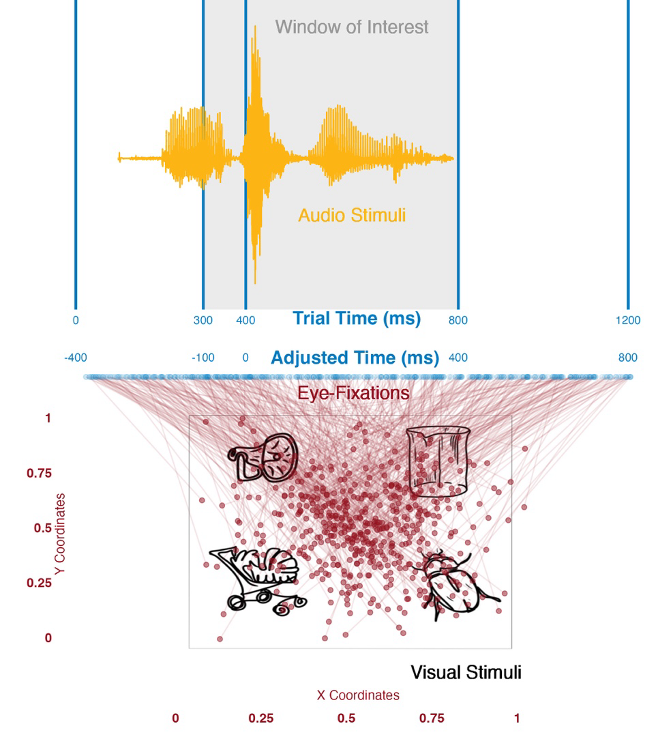LANGUAGE ACQUISITION, PROCESSING, AND PEDAGOGY LAB
We advance linguistic theory and improve language education

Established in 2015, LAPP Lab carries out behavioral and eye-tracking research. Our research is generously supported by the National Science Foundation, the National Institutes of Health, Duolingo, the journal Language Learning, and the PROSEED/TEL CMU fund.
PhD, MA, and BA/BS students take part in research, conference presentations, and journal publications. Grad students have gone on to tenure-track, post-doc, and industry positions. Undergrads have gone on to top graduate schools. Consider joining the lab!
LAPP Lab stimuli, data, and code are made freely available on the Open Science Framework. Because team science is the best science, LAPP Lab collaborates with other labs and is part of the Pittsburgh Cognitive Auditory Neuroscience (PCAN) network.

LAPP Lab takes an interdisciplinary approach to understanding the mechanisms and architecture underlying language acquisition and processing. Our work bridges linguistics, psychology, speech science, and education, and aims to contribute real-world pedagogical innovations that improve language teaching and learning. The lab has two standing research groups: Psychling, the behavioral psycholinguistics group, and StatsEye, the R and eye-tracking group.
Interested in gaining research experience? Getting copies of papers or materials? Opening a dumpling lab? Or even participating in one of our studies? Contact the lab's director, Dr. Seth Wiener,
for
more information.
Dr. Wiener is an Associate Editor for the journal, Applied Psycholinguistics. His Erdös Number is 4. He is mostly interested in dumplings, breakfast, and comedy. Learn more about him on the podcast, "Lost in Citations."

Principal Investigator
Chisom joined the lab in 2020. She is interested in speech perception, second language acquisition, psycholinguistics training methods for language learning, and auditory neuroscience.

PhD student
Bota joined the lab in 2021. She is interested in reading, second language acquisition, language assessment, and mixed-methods research.

PhD student
Adam joined the lab in 2022. He is interested in understanding language learning and non-native speech perception through psycholinguistics, data analytics, and open science.

PhD student
Bianca joined the lab in 2023. She is interested in multilingual identity and ideology in second language acquisition.

PhD student
Yikai joined the lab in 2024. He is a Statistics and Data Science major and a Math major. He is interested in eye-tracking data and modeling.
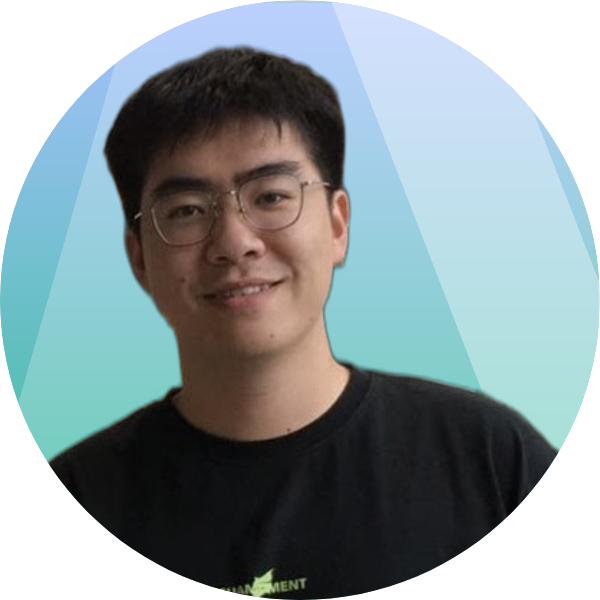
Undergraduate
Noor joined the lab in 2024. She is a linguistics major.
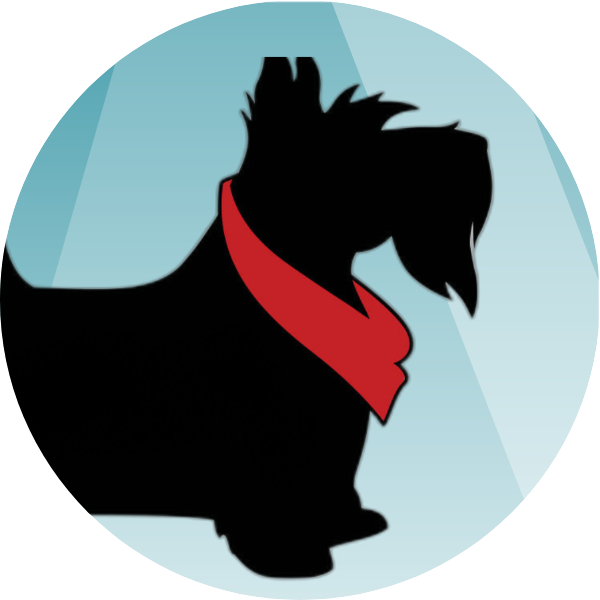
Undergraduate
Seoyoon joined the lab in 2024. She is a film and visual media major.

Undergraduate
Andrew has not been seen in the lab for quite some time, and he really isn't known for his linguistics, but his heart is in the work.

Industrialist

See our new paper, "Incidental Nonspeech Auditory Learning Scaffolds Phonetic, Category, and Word Learning in a Foreign Language Classroom" published in Language Learning. Very proud of this one. It took a lot of our time and attention over many years. Hope you are safe in 2025.
"Instructions for living a life: Pay attention. Be astonished. Tell about it."
--Mary Oliver
Congratulations to Chisom Obasih (ABD) who was awarded a Duolingo Dissertation Research Grant for her dissertation, "Gradient categorization, linguistic diversity, and second language acquisition: Evidence from the use of multilingual training items in the perceptual learning of L2 phonemic contrasts."
Adam Bramlett, Chisom Obasih, and Seth presented at the 25th Midwest Association of Language Testers Conference hosted by Duolingo. See our handout for "Assessing the relationship between rhythmic ability and perception of non-native speech contrasts using hierarchical drift diffusion modeling music skills, cognition, and speech perception."

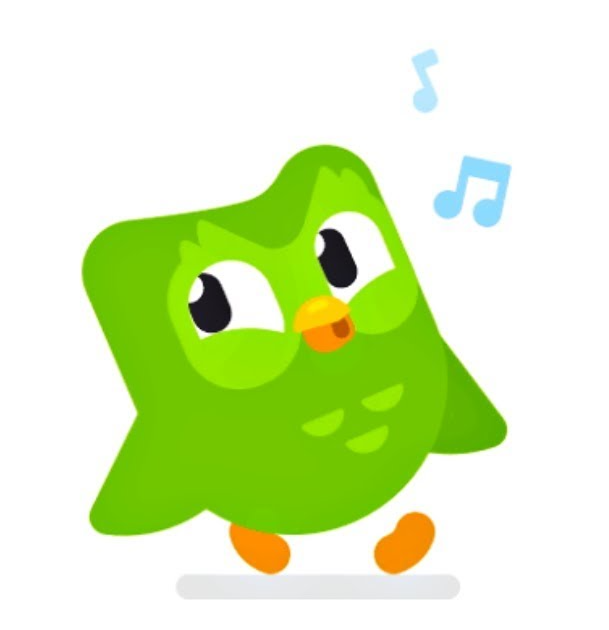
We made it to lovely Leiden University where we shared our ongoing work on music skills, cognition, and speech perception and our ongoing work on acoustic cues and fluency judgments of L2 Italian stress.
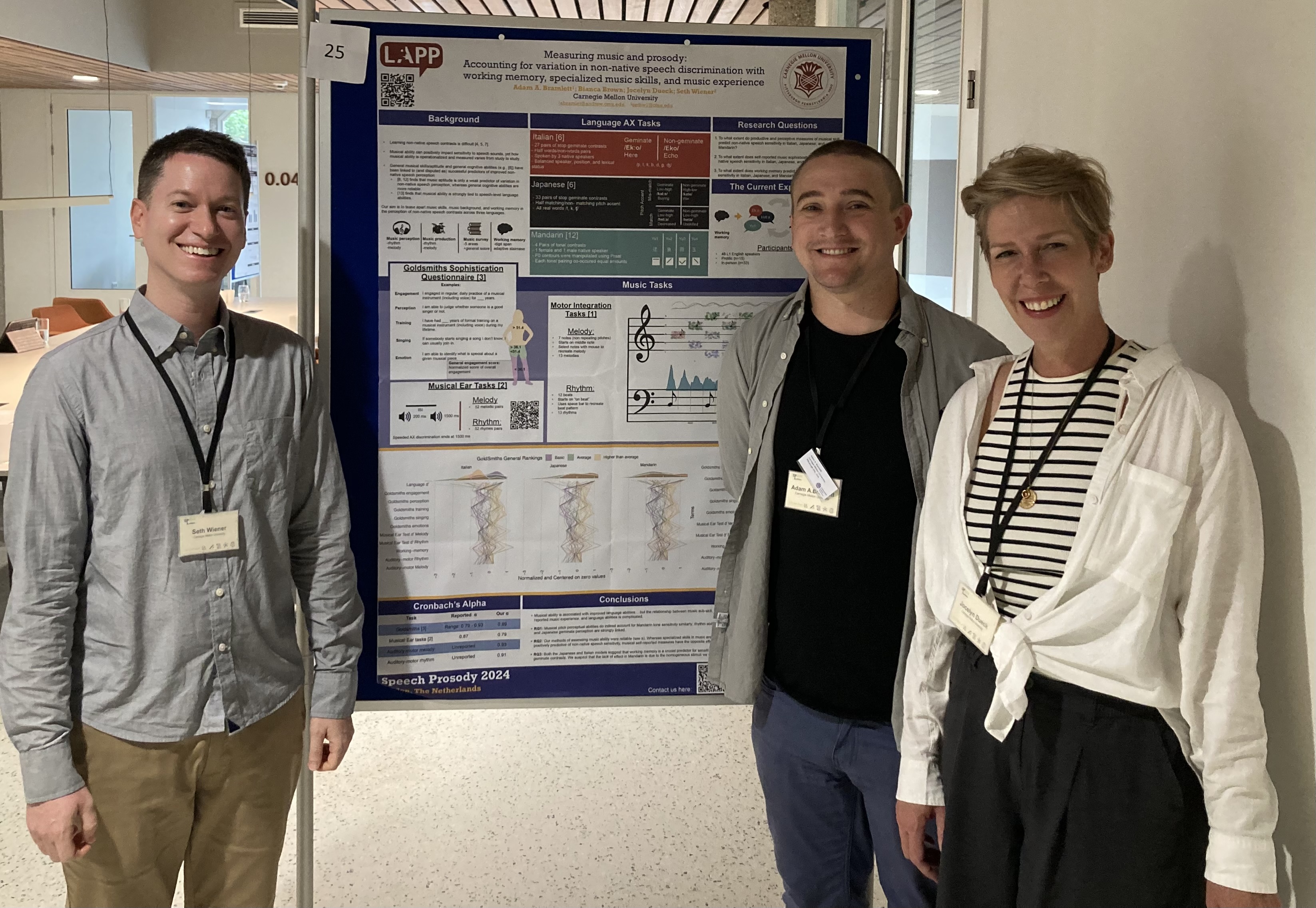
Our paper "The Art of Wrangling: Working with Web-based Visual World Paradigm Eye-tracking Data in Language Research" was accepted in Linguistic Approaches to Bilingualism. This paper provides a framework for reproducible, open science visual world paradigm studies using online experiment builders. All our tasks, data, and code are available for free!
